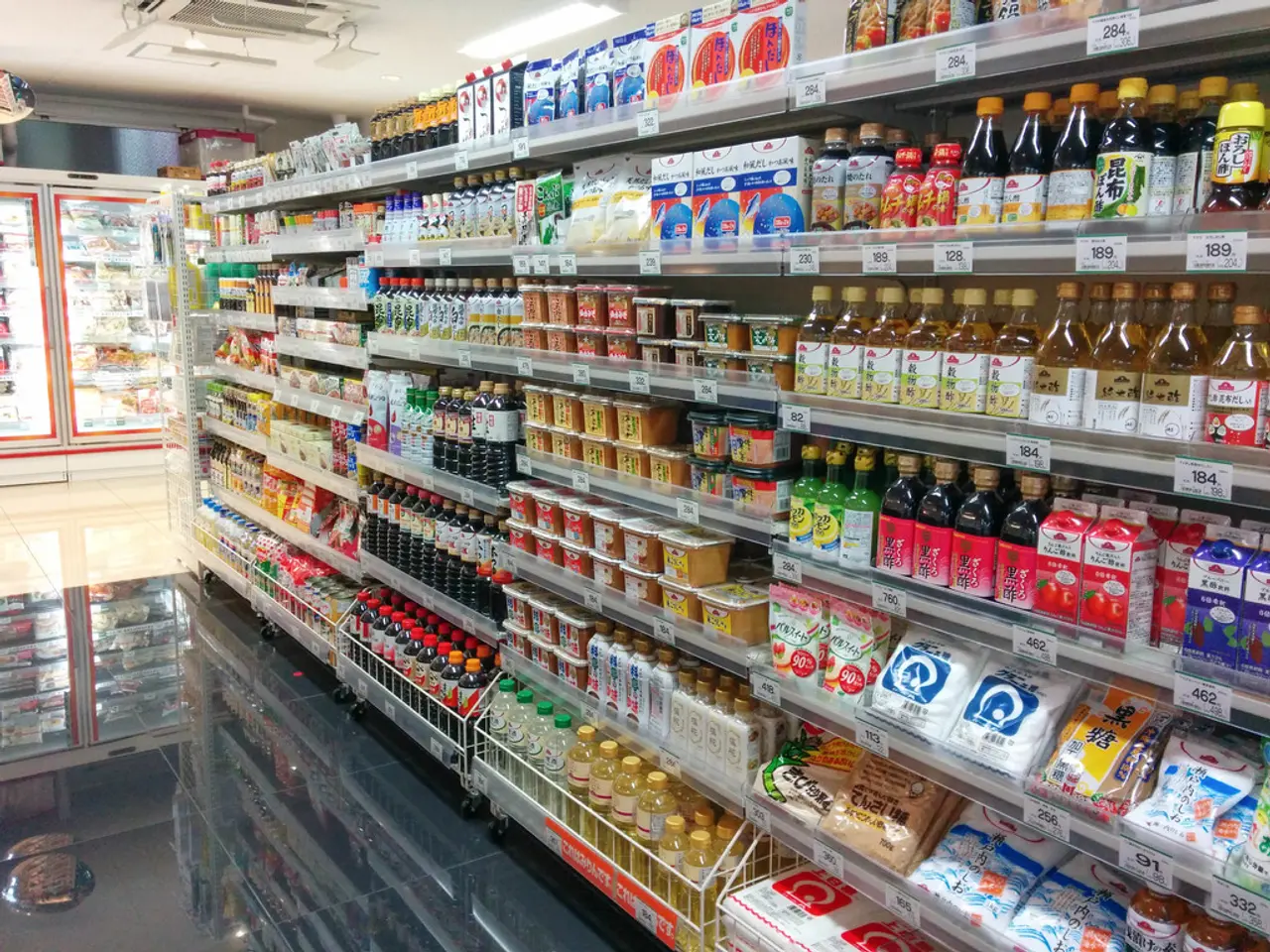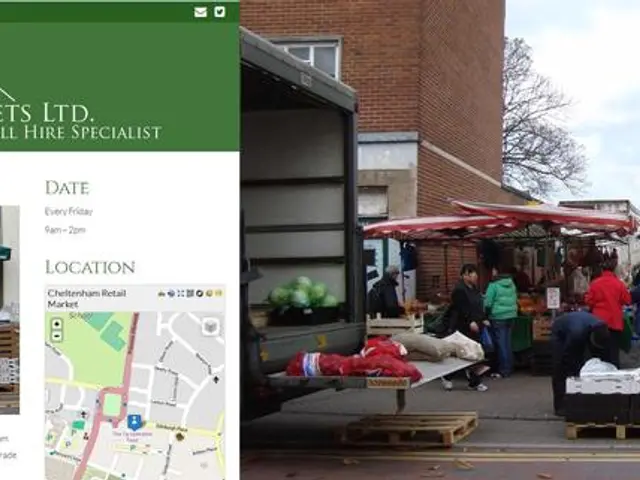Companies express concern about delayed price increases due to current inflation levels
In a recent analysis, Lloyds' UK Sector Tracker reported that the overall rate of business cost inflation rose to a three-month high in August. This increase was observed across various industries, with the costs of British businesses rising in recent months.
However, there was some relief for consumers as supermarket inflation eased from 5% in August to 4.9% in September, according to separate data from Worldpanel by Numerator. This decrease was particularly noticeable in the food and drink sector, where manufacturers increased prices at a significantly slower rate compared to the previous month.
Despite this slight reprieve, the vast majority of industries continue to face lacklustre demand. For the 14th consecutive month, demand softened in more than half of the sectors tracked. In August, demand measured by new order volumes grew in four out of 14 UK sectors, according to Lloyds' UK Sector Tracker, which is more than in July and the highest number of sectors since November last year.
The software and services sector was the fastest-growing in August, with activity growth reaching a 40-month high. However, firms could soon ramp up price hikes if their costs increase further.
Wage inflation and higher employer national insurance contributions have been a major driver of increased business costs this year. These factors, along with the rising costs of raw materials and supply chain disruptions, have put pressure on businesses to pass on these costs to their customers.
In September 2021, major German food discounters such as Aldi, Lidl, Penny (Rewe Group), and Netto (Edeka Group) notably increased prices for customers amid rising inflation and increased cost pressures in the food sector. However, seven sectors raised prices faster than in July, but 13 did not opt to pass on the full extent of price rises to their customers.
Inflation remained at 3.8% in August, according to the ONS. As the economic situation continues to evolve, it will be interesting to see how businesses navigate these challenges and whether supermarket inflation will continue to ease in the coming months.




